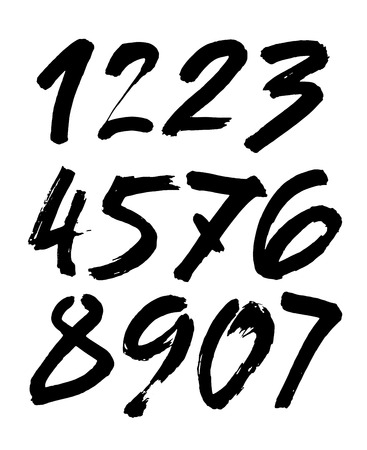Understanding Retrogrades: An Astrological Overview
In the cosmic dance of our solar system, planetary retrogrades stand out as particularly intriguing phenomena. To truly understand their impact, it’s essential to break down what “going retrograde” means from both astronomical and astrological perspectives. Astronomically, a retrograde occurs when a planet appears to move backward in its orbit from our viewpoint on Earth. This illusion is caused by the relative speeds and positions of planets as they journey around the Sun—a bit like two cars passing each other on the highway, where the slower car seems to move backward for a moment.
Astrologically, retrogrades have long been seen as periods of reflection, review, and sometimes disruption. When a planet “goes retrograde,” astrologers interpret this apparent reversal as a time when that planet’s themes turn inward or require reevaluation. For example, Mercury retrograde is famously linked to communication mishaps and technological glitches, while Venus retrograde prompts us to rethink relationships and values. These cycles are woven into the fabric of astrological tradition, shaping not just personal lives but also collective moods and cultural trends.
The fascination with retrogrades isn’t just about planetary mechanics—it’s also deeply rooted in how societies have historically made sense of uncertainty, change, and fate. As we travel backwards in time through the history of astrology, we’ll see how these cosmic reversals have left their mark on society and continue to resonate with us today.
2. Historical Beliefs and Folklore Around Retrogrades
Throughout history, retrogrades have captured the imagination of cultures around the world, serving as cosmic signposts woven into the fabric of myth and daily life. From the ancient Babylonians to Native American storytellers, these celestial phenomena were interpreted not just as astronomical curiosities but as powerful symbols guiding fate and collective destiny.
Babylonian Wisdom: Stars and Society
The Babylonians were among the first to document planetary movements, meticulously charting retrogrades and assigning them meaning. They believed that when a planet appeared to move backward, it was signaling a time for reflection or warning. Their astrologers advised kings and communities on everything from harvests to warfare based on these cycles. Retrogrades became metaphors in Babylonian folklore—stories told around fires about gods retracing their steps, asking mortals to reconsider past decisions.
Retrogrades in Ancient Cultures: A Comparative Glimpse
| Culture | Interpretation of Retrogrades | Cultural Impact |
|---|---|---|
| Babylonian | Omen of pause or reversal; a call for introspection | Kings sought guidance, rituals performed for protection |
| Greek & Roman | Associated with gods’ moods and messages | Myths explained human misfortune during retrogrades |
| Native American | Cycles of nature mirrored in celestial shifts; seen as times for story-sharing and wisdom gathering | Elders shared parables linking retrogrades with lessons about patience and renewal |
The Tapestry of Native American Storytelling
Within many Native American traditions, retrograde periods weren’t feared but honored as sacred pauses in the rhythm of life. Elders would gather younger generations and recount legends where animals or spirits moved “backwards,” teaching that sometimes progress is found by revisiting old paths. These stories became emotional anchors, reminding communities that every setback holds seeds of growth.
Across continents and centuries, societies turned to the sky not just for navigation but for meaning—retrogrades acting as cosmic reminders that our journeys are rarely linear. Embedded in folklore, rituals, and everyday choices, these celestial events continue to inspire us to look inward, heal old wounds, and trust that even backward steps can lead us exactly where we’re meant to be.

3. Retrogrades and Major Historical Events
Throughout history, the phenomenon of planetary retrogrades has both fascinated and unsettled societies, especially during pivotal moments. In the United States, Mercury retrograde periods have often been linked—sometimes coincidentally, sometimes intentionally—to moments of confusion or dramatic change. For instance, the Watergate scandal in the early 1970s unfolded during a series of Mercury retrogrades, which many astrologers at the time noted as symbolic of hidden truths coming to light and miscommunications unraveling power structures. The stock market crash of 1929 also overlapped with a Mercury retrograde, leading some to wonder whether cosmic timing nudged collective anxieties or simply mirrored them.
Globally, retrogrades have coincided with key turning points: the signing of the Treaty of Versailles at the end of World War I occurred under a Venus retrograde, which astrologers interpreted as a warning that peace would be fraught with complications—a prediction that, in hindsight, seems almost prophetic. Even NASA’s Apollo 13 mission, which faced near-disaster in 1970, launched just days before Mercury went retrograde. Whether by fate or coincidence, these alignments have deepened public intrigue about astrology’s role in shaping events.
The American psyche is particularly attuned to themes of destiny and timing, making retrogrades fertile ground for reflection. When major events unfold under these cosmic cycles, narratives of “meant to be” or “cosmic tests” often arise. While skeptics may dismiss such correlations as chance, many individuals—and even leaders—have quietly consulted astrological advice when navigating turbulent times. Retrogrades serve as reminders that life’s unpredictability sometimes feels guided by forces beyond our control. In exploring these historical overlaps, we’re invited not only to revisit the past but also to reconsider how we make meaning from the mysteries that shape our collective journey.
4. Retrogrades in American Popular Culture
When it comes to American pop culture, few astrological events have woven themselves so deeply into the fabric of everyday life as retrogrades—especially Mercury retrograde. Over time, these cosmic occurrences have shifted from niche astrology circles into mainstream consciousness, shaping not just personal beliefs but also language, attitudes, and even business decisions.
Language and Everyday Expressions
The phrase “Mercury is in retrograde” has become a catch-all explanation for everything from missed appointments to tech malfunctions. In casual conversations and across social media platforms, this saying is shorthand for moments when life feels out of sync or unpredictable. This linguistic adaptation reflects how Americans process uncertainty—by giving it a cosmic label, people find humor and solidarity in shared confusion.
Attitudes and Social Media Trends
Retrogrades have given rise to a wave of memes, GIFs, and trending hashtags like #blamemercury or #retrogradeproblems. These trends are more than just digital jokes—they’re ways for people to express collective anxiety and resilience during disruptive times. Influencers and wellness accounts often post advice on how to “survive” or “thrive” during retrogrades, further embedding these cycles into public consciousness.
Popular Hashtags During Retrogrades
| Hashtag | Common Use Case |
|---|---|
| #MercuryRetrograde | General disruptions, communication mishaps |
| #BlameMercury | Lighthearted blame for daily annoyances |
| #RetrogradeSurvivalGuide | Tips and coping strategies during retrogrades |
Business Decisions Influenced by Retrogrades
In recent years, some American businesses—especially those led by millennials and Gen Z entrepreneurs—have started paying attention to retrograde cycles when making decisions. For example, certain companies avoid launching new products or signing contracts during Mercury retrograde. Marketing campaigns may even reference retrograde energy to connect with customers on a playful, relatable level.
The Impact Table: Retrogrades in Modern America
| Area of Life | Retrograde Influence |
|---|---|
| Language | Phrases and idioms about retrogrades enter common speech. |
| Social Media | Meme culture thrives during retrograde periods. |
| Business Practices | Product launches postponed; marketing adjusted. |
| Mental Health & Wellness | Self-care routines promoted in response to cosmic “disruption.” |
Retrogrades remind Americans that while we can’t control the cosmos, we can choose how we respond—with humor, creativity, and a willingness to adapt. In this way, the language of the stars continues to shape our modern story, one cycle at a time.
5. Emotional and Societal Resilience During Retrogrades
Shifting Mindsets in the Face of Cosmic Change
Throughout history, retrograde periods have been seen as times of uncertainty, but also profound transformation. In American culture, these celestial events often prompt a collective pause—a chance to reflect on what’s working and what isn’t, both individually and within society at large. Families gather around kitchen tables to talk through misunderstandings, friends check in on one another more frequently, and communities come together, realizing that shared challenges can foster deeper connections. The collective mindset shifts from resistance to acceptance, opening doors for growth and healing.
Strengthening Family Bonds
During retrogrades, especially Mercury retrograde which is widely discussed in American astrology circles, families have historically leaned into open communication. Rather than avoiding conflict, many use these periods as opportunities to address old wounds or clear up lingering confusion. This conscious approach has helped generations navigate emotional turbulence with grace, recognizing that setbacks are not failures but invitations to reconnect and realign with loved ones.
Community Resilience and Collective Support
On a broader scale, retrogrades have inspired entire communities to band together. Local support groups, faith-based gatherings, and neighborhood initiatives often see an uptick during these times as people seek comfort in shared experience. By leaning into mutual aid and community resources, Americans have demonstrated remarkable resilience—turning what might feel like cosmic chaos into a time of unity and support.
Personal Growth Amidst Cosmic Shifts
For individuals, retrogrades offer a powerful mirror. They invite introspection and emotional honesty—a hallmark of the American self-help movement. People may journal more, seek therapy or spiritual guidance, or simply slow down and listen to their inner voice. By reframing retrogrades from something to fear into a catalyst for change, both individuals and society have learned not only to survive these cycles but to thrive through them.
6. Contemporary Spirituality: Reclaiming Retrograde Energy
In recent years, a wave of transformation has swept through spiritual communities and wellness circles across the United States, fundamentally reshaping how retrogrades are perceived and experienced. What was once widely feared or misunderstood is now being reclaimed as a powerful catalyst for personal growth and inner healing. This shift is not just about astrology—it’s about embracing life’s natural cycles with compassion, curiosity, and courage.
The Evolution of Perception
For generations, retrogrades—especially Mercury retrograde—were synonymous with chaos, miscommunication, and setbacks. However, a new narrative is emerging within contemporary spirituality that challenges these old beliefs. American seekers are increasingly viewing retrograde periods as invitations to slow down, reflect, and reconnect with themselves on a deeper level. Instead of resisting these cosmic pauses, individuals are encouraged to welcome them as opportunities for realignment and self-discovery.
Growth Through Reflection
This cultural reframing emphasizes the importance of introspection during retrogrades. Guided by the wisdom of both ancient traditions and modern psychology, spiritual practitioners in the US use these times to journal, meditate, and revisit unfinished projects or unresolved emotions. The focus shifts from fearing disruption to nurturing resilience and adaptability—qualities essential for navigating both cosmic cycles and daily life.
Healing as a Collective Journey
Retrogrades have also become a shared language among those seeking holistic well-being. Group workshops, online forums, and local gatherings blossom around each retrograde season, fostering community support and mutual understanding. These spaces offer validation and encouragement for anyone experiencing emotional turbulence or uncertainty. The collective journey through retrograde energy highlights the interconnectedness of individual healing and societal transformation.
Inner Transformation in Modern America
Today’s American spiritual landscape recognizes that true empowerment comes from engaging with life’s challenges—not avoiding them. Retrogrades are seen as gentle teachers guiding people inward to confront patterns that no longer serve them. Whether it’s setting boundaries in relationships or finding clarity in career paths, these periods inspire intentional living rooted in authenticity and self-love.
By reclaiming retrograde energy as a force for positive change, Americans are weaving ancient wisdom into modern life—creating a culture where destiny isn’t something to be feared or fought against but embraced as an unfolding journey toward wholeness.


